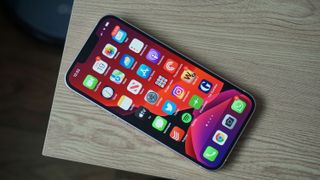Buying refurbished smartphones has never been more popular
Brits are more cost, brand and environmentally conscious, CCS survey finds

The pandemic has changed the way Brits purchase mobile phones and contracts, with a new study suggesting consumers are holding their devices for longer, are more likely to bypass the high street, and more comfortable with participating in the market for refurbished devices.
Four fifths of respondents to CCS Insight’s mobile buying survey said they intended to keep their current phone for as long as their previous one and a third of consumers only bought a new phone because their old one was damaged or stopped working.
The statistic illustrates the difficulty manufacturers have in encouraging people to upgrade when they are satisfied with their current phone – especially when the average selling price (ASP) of premium smartphones is steadily increasing.
UK mobile phone market
The global chip shortage caused by the pandemic is having at least a short-term impact on sales. One third of respondents said the phone they had intended to purchase was out of stock and therefore they had decided to wait.
Cost and environmental concerns are driving the market for refurbished phones, with consumers eager to recycle their devices and get money off a new one or hoping to get new technology for a lower price.
Almost half of respondents said they had sold, or part exchanged a mobile phone at some point in the past year, while refurbished devices now account for 7% of all personal handsets in use in the UK. Satisfaction, availability, cost, and sustainability all explain why repairs are increasingly common too.
The chip shortage is disproportionately affecting mid and low-tier devices, making it difficult for some manufacturers to take advantage of this situation with affordable, featured-packed products. But in any case, the UK has long been acknowledged as one of the most brand-conscious mobile markets in the world and CCS’s report reflects that.
Are you a pro? Subscribe to our newsletter
Sign up to the TechRadar Pro newsletter to get all the top news, opinion, features and guidance your business needs to succeed!
Three quarters of respondents have either an iPhone or Samsung device, while two third bought a new phone from the same manufacturer as their old one – a figure which rises to 80% among Apple users. Tellingly, nearly half didn’t even consider another vendor.
Even the way consumers are purchasing their devices is changing. Lockdown restrictions, investments from operators and retailers in their digital presences, and the permanent closure of Carphone Warehouse high street stores means 52% of mobile purchases were made online in 2021 – up from 45% in 2020 and 41% in 2019. Furthermore, operators themselves are losing ground to retailers like Amazon, Argos, eBay, John Lewis and direct manufacturer channels.
“The survey highlights significant changes how UK consumers buy mobile devices and services,” said Kester Mann, director of consumer and connectivity at CCS Insight.
“The landscape is being redrawn by multiple factors, including device trade-in, a burgeoning secondary phone market, the trend to online buying, new distribution channels, environmental considerations and lengthening replacement cycles. New and existing suppliers need to respond to these changes to stay ahead of the competition.”
- Lookign to upgrade? These are the best 5G phones around
Steve McCaskill is TechRadar Pro's resident mobile industry expert, covering all aspects of the UK and global news, from operators to service providers and everything in between. He is a former editor of Silicon UK and journalist with over a decade's experience in the technology industry, writing about technology, in particular, telecoms, mobile and sports tech, sports, video games and media.
Most Popular

